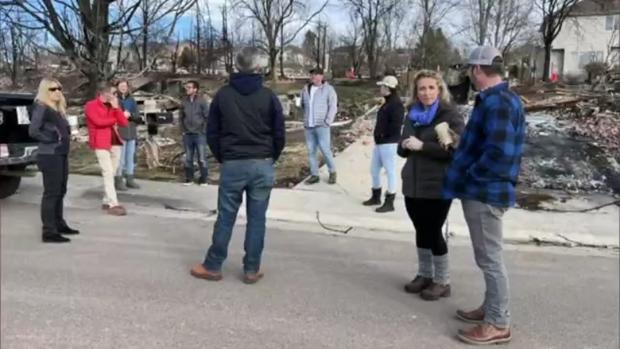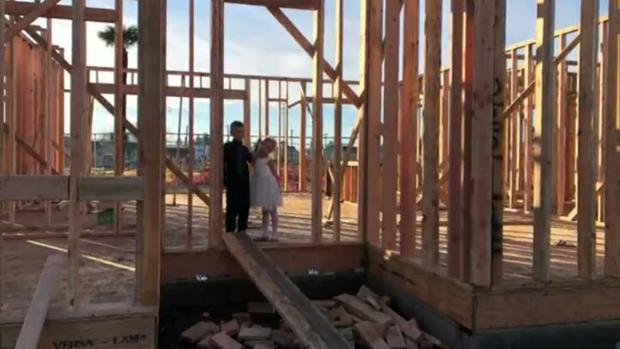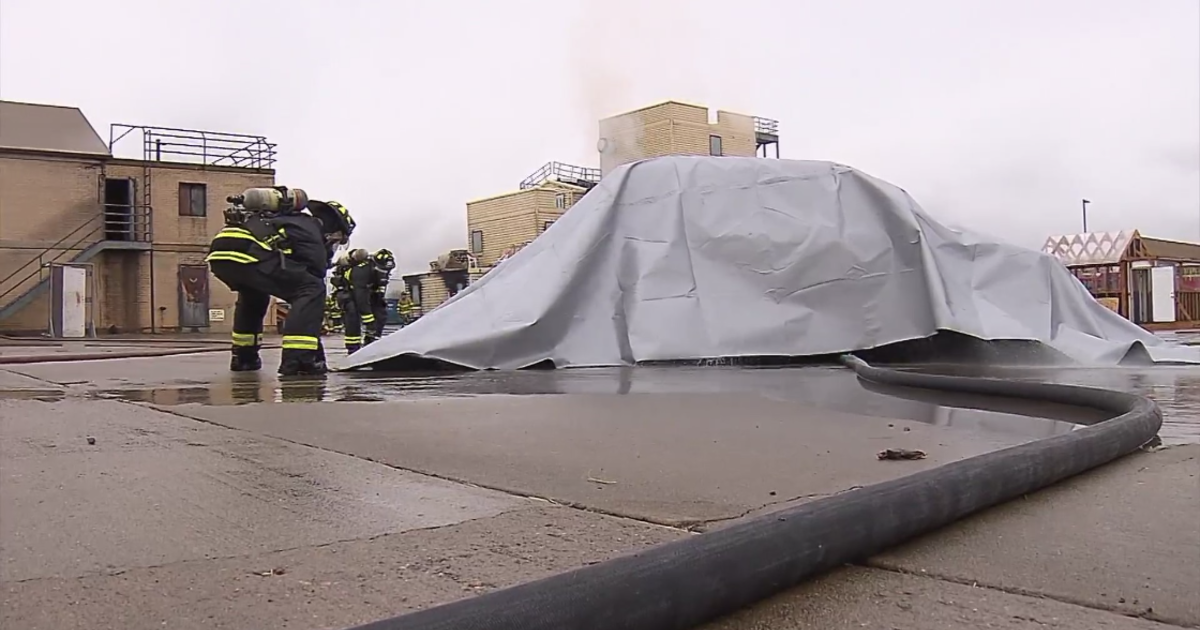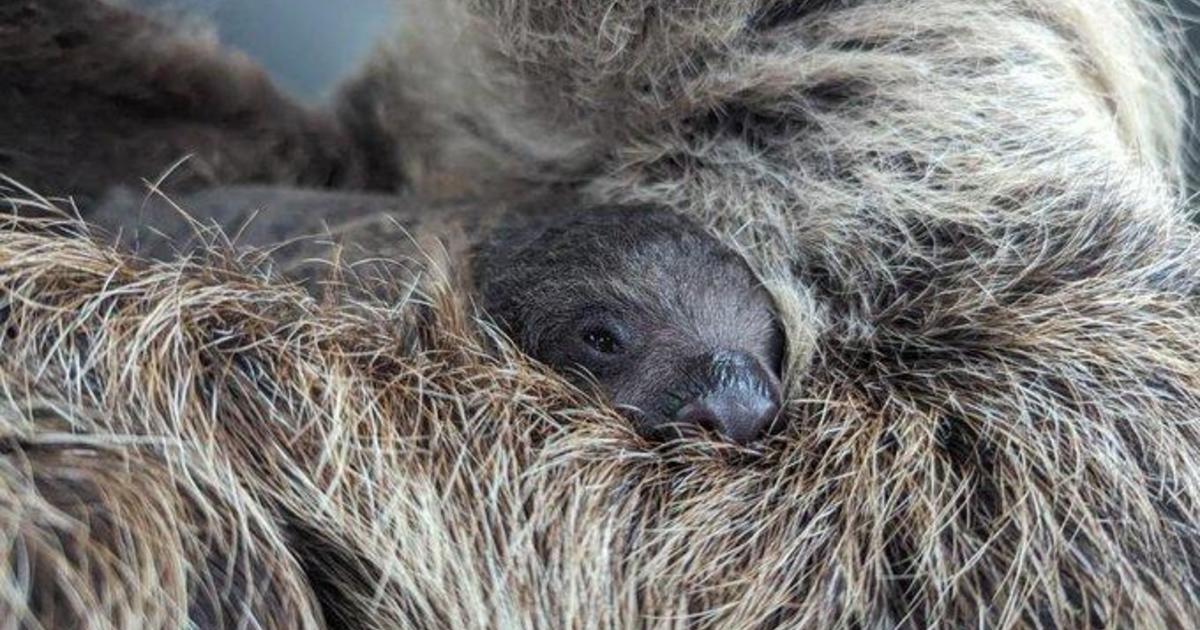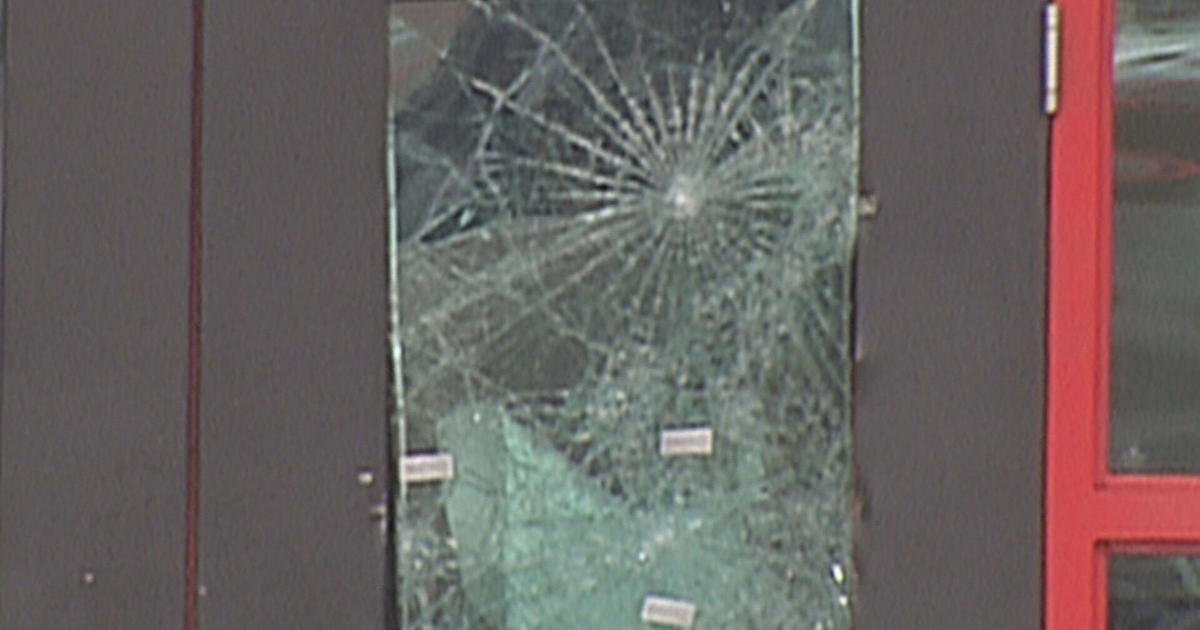Team From California Helps Guide Marshall Fire Victims In Recovery
(CBS4) - Marshall Fire survivors will have a chance to listen to people who have been through what they are going through Wednesday night when there will be an open forum at the Superior Community Center at 6 p.m. and via Zoom. A team from After the Fire, a nonprofit based in wildfire prone areas of California will be available to talk to people about their experiences.
"Because we're also survivors," said founder and CEO Jennifer Gray Thompson.
"Our organization was born in the middle of the 2017 mega fires that hit the north bay of San Francisco," she explained Tuesday.
The group had a long day of meetings and visits with neighborhood rebuilding leaders, fire survivors and town trustees in Superior as well as discussions in Louisville. They conveyed how their stories were similar.
"We lost our house in the Tubbs Fire," said fire victim Brad Sherwood. "Very similar conditions to what folks here experienced, except it happened in the middle of the night. No evacuation warning. We got out of our house within minutes before the fire consumed it."
That fire claimed over 5,600 structures and killed 22 people. It was the most destructive in California history until it was surpassed by the Camp Fire a year later that claimed nearly 19,000 structures.
The lessons learned are many explained group members.
"There are three types of people who show up after a disaster. There are those that want to defraud you unfortunately. There are those who want to sell you something and there are those who want to help you," said Gray Thompson.
Like the Marshall Fire, the survivors have been stuck with things like too little insurance coverage. Sherwood said his home in Santa Rosa was vastly uninsured. What happened was we ended up using not only our dwelling money but our content money to rebuild our house, meaning at the end of the day we had not a penny left over to buy a new chair, or replace anything we lost."
They recommend several things, among them setting up block and zone captains to help oversee information and keep people in touch of small aggregates like a dozen or so homeowners.
"And we saw that be very successful and lead to much faster rebuilds," said Gray Thompson.
It is difficult to communicate with people who are scattered in different places but who used to live in neighborhoods together. People also need to realize that government has to be a big part of the effort, she explained.
"It's natural for people to turn to their local leadership and blame and get very upset. And there's reasons to be upset very often and you're in this journey with them together you have to partner with local government to get through a long term disaster, it has to happen. You can hold them accountable but we say call them in, you don't need to call them out."
Sherwood found that getting together with others to rebuild was a help. He was able to get his home built in 18 months.
"Work with a builder to do what is called a group rebuild. Five, ten twenty homes together. That maximizes and reduces, costs, supplies."
Things are much better in the fire areas hit by California's big fires, but some things have changed. His family has go-bags at the ready. His children have them nearby. They keep a go bag in their room every night. Whenever it's windy, they ask me if there's going to be another fire?"
There are a series of podcast discussions from After the Fire that may be useful for fire survivors.
You'll find them on a special YouTube channel.
LINK: After the Fire's Website
